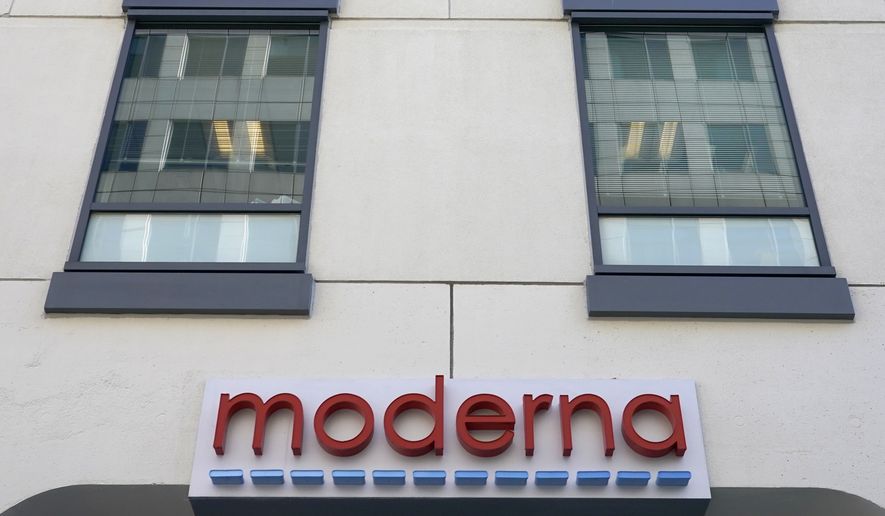Moderna said Wednesday that a COVID-19 booster candidate designed to target omicron sparked a “superior” antibody response to the pesky variant than its original vaccine.
U.S. officials are currently deciding whether better-tailored shots such as Moderna’s new offer will be needed by fall.
Massachusetts-based Moderna said it will submit its findings to regulators in the coming weeks in pursuit of authorization by the summer.
The company’s candidate is a “bivalent” booster that combines its original vaccine with material targeting omicron.
“We are thrilled to share the preliminary data analysis on [the booster candidate], which is the second demonstration of superiority of our bivalent booster platform against variants of concern and represents an innovation in the fight against COVID,” Moderna CEO Stéphane Bancel said.
The Food and Drug Administration is scheduled to discuss June 28 whether Pfizer and Moderna, the dominant vaccine makers, should pivot toward omicron-specific boosters given the extent to which the virus has mutated since the original strain appeared in Wuhan, China, in late 2019.
Scientists say available vaccines can stave off severe disease but protection from the shots wanes over time and omicron can evade some of the protection from two doses.
The Moderna study did not examine the effectiveness of the booster, known as mRNA-1273.214, but it documented an antibody response that is 1.75 times the level of neutralizing antibodies as the existing vaccine.
“Moderna’s announcement suggests that the American public can expect a different booster vaccine this fall, which includes not just the original coronavirus, but also an omicron-specific vaccine. This is good news because all current vaccines do not seem effective at preventing infection, even though they remain effective in preventing serious disease and death,” said Lawrence O. Gostin, a global health law professor at Georgetown University.
He cautioned, however, that there is no guarantee that the bivalent booster’s effectiveness against infection will be long-lasting.
Scientists also remain worried that the virus is evolving so fast that it will be difficult for drugmakers to keep up and manufacture targeted vaccines.
Variants dubbed BA.4 and BA.5 are becoming a concern and could out-compete existing sub-lineages of omicron in the coming weeks or months. It is unclear if they cause worse disease but they account for 13% of U.S. cases, up from about 7.5% the prior week, according to the Centers for Disease Control and Prevention.
Public health experts said the U.S. may face an annual booster campaign in which drugmakers make their best estimate of what will be circulating and try to forge shots that are as effective as possible but not perfectly targeted.
“We are likely to experience COVID-19 much as we do influenza, with new vaccines and boosters as we go forward,” Mr. Gostin said. “Currently, [the World Health Organization] monitors worldwide influenza strains and advises on the composition of new flu vaccines. WHO, together with CDC and the companies themselves, will have to do careful surveillance of how the coronavirus mutates and devise new vaccines at least yearly, if not more often.”
For more information, visit The Washington Times COVID-19 resource page.
• Tom Howell Jr. can be reached at thowell@washingtontimes.com.




Please read our comment policy before commenting.